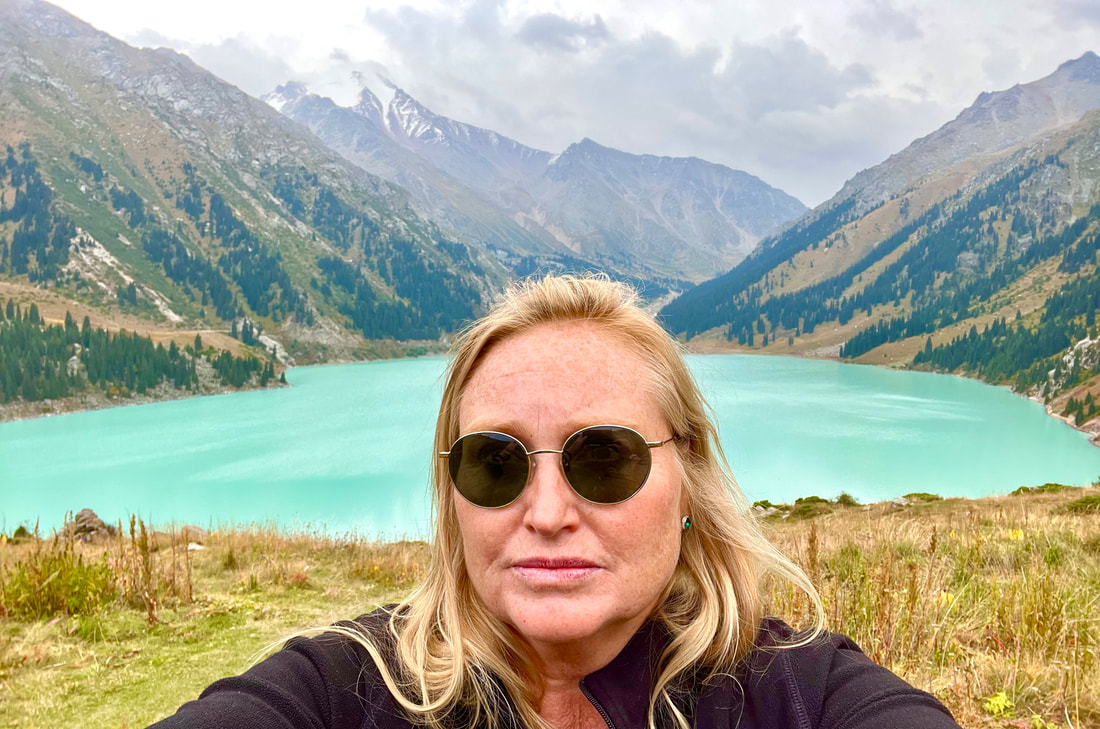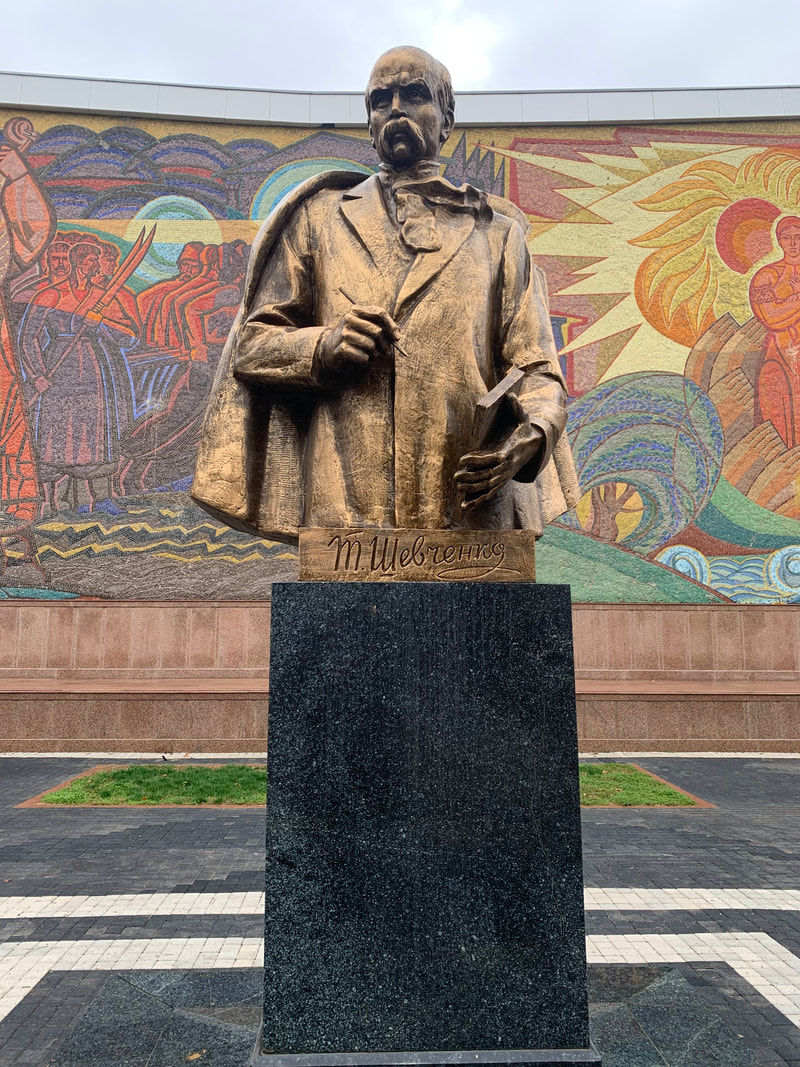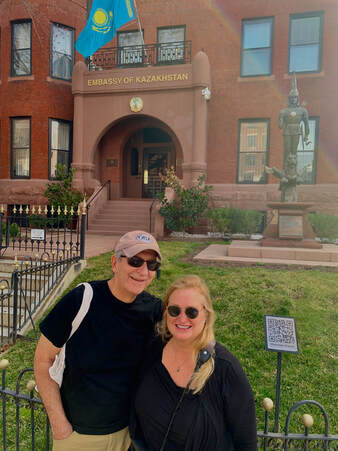|
We arrived here at 2 a.m. on Thursday morning, still Wednesday in the U.S. The airport was like most post-Soviet airports— long passports lines for foreigners, unguarded baggage claim, hoards of taxi drivers all yelling at us as we parted through them with our four giant pieces of luggage, two small bags, and two backpacks. I could have been arriving in Kyiv's Boryspil airport or the train station. The scene was so similar. Tashkent is a city of smaller buildings than Kyiv, though those buildings look the same, concrete monstrosities. Inside, though they are sleek and modern, a tribute to the craftsman in post-Soviet countries.
As soon as we arrived, we learned we were not the only immigrants to discover Uzbekistan, a sleepy small country on the edge of the old Soviet maps. Russian and Belorussian bloggers and programmers and businessmen who couldn't function in their countries fled to Uzbekistan, which has officially declared that it is Switzerland in the fight between Ukraine and Russia. Some fight. More and more Ukrainians are dying and every day I worry about my former students, our friends and former neighbors. So, we have had to do strong negotiations to get anyone to rent us an apartment for 2.5 months. "Why should I rent to you," one landlord said, "when I can rent to Belorussians for twice the amount?" It turns out everyone is a capitalist. As we were walking around our new neighborhood, I found this statue of Taras Shevchenko, a Ukrainian poet, in front of a beautiful Soviet mosaic. Why is this Ukrainian poet being honored in Uzbekistan, hundreds of miles from his homeland? There are so many reminders of Ukraine here because post-Soviet countries still have the same culture. No one likes to admit it, but it's true. For example, the whole bureaucratic rental system is the same here as it is in Ukraine. We moved into an apartment over the weekend and had to wait until Monday (today) to register. Literally every foreigner must register with the Uzbek government every single day or face a fine of $2,000 a day. Ouch! You must register to rent an apartment and then the lease must be registered with the government tax office. Every person along the way has their hand out. We were told that my host agency, called The Agency, which has a long name which basically means they are the government censors, must write us a letter. But the US Embassy told us we didn't need such a letter. But the government registrars demanded we produce a letter. Much negotiations. The US Embassy made phone calls. The landlord demanded we pay him three months rent. The real estate agents demanded we pay them their fee. Or else we were on the street with our bags (did I mention how many of them there are and that we had to hire a cargo truck to move them to the apartment?) and the raw chicken and mutton I bought at the grocery store. I could see us standing in the rain —it has rained here for a solid week—holding the smelly meat and our bags. Oh my god. My husband was furious as everyone was demanding money. He stood up—he is a tall man and even taller in a country of short people—and said, "We have to leave this country. They are trying to kick us out!" But the traveling gods smiled on us and delivered an amazing English speaking Kazakh who negotiated for us. So we have a place to stay for a few days. Stay tuned. Today my husband and I secured our Kazakhstan visas. Last week, Uzbekistan finally granted us visas after several weeks of negotiations. And so tomorrow, after a year and half of waiting, Greg and I will begin my Fulbright to Central Asia. The first leg begins in Uzbekistan. After two calendar days of flying, we'll finally land in Tashkent at 2 a.m.
|
Fulbright in Central AsiaFrom March, 2022 to January of 2023, I was a Fulbright Scholar with the U.S. State Department in post-Soviet Central Asia. My previous Fulbright was in Ukraine. For the past six years, I have reported on journalists from post-Soviet countries who have experienced retaliation for reporting the truth. Archives
January 2023
|



 RSS Feed
RSS Feed
